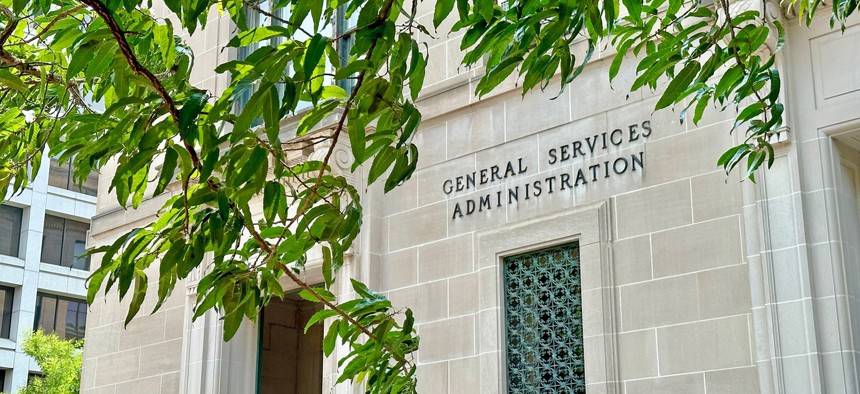
Douglas Rissing/Getty Images
More than 2,100 GSA employees have accepted deferred resignations
Combined with those employees that have been impacted by reductions in force, the losses amount to nearly a quarter of what the agency’s workforce totals were last fall.
Just over 2,100 employees at the General Services Administration have taken the Trump administration up on its deferred resignation offer, according to two current GSA employees.
The Trump administration first sent employees the controversial “Fork in the Road” email about a week after the inauguration, offering for them to resign from their jobs but continue to get paid through the end of September.
Since then, the program has been challenged in court even as agencies, including GSA, the Department of Defense and the Small Business Administration, re-opened the program earlier in the spring.
As of September of last year, the agency had around 13,000 employees, meaning that the 2,100 that have taken the deferred resignation offer amount to roughly 16% of that workforce.
GSA has also laid off around 1,000 federal employees across its Office of the Chief Financial Officer, Public Buildings Service and tech teams, one of which — tech consultancy 18F — has been shut down completely.
The agency is also bringing employees back to the office, although it appears that its 1800 F Street building doesn’t have enough space for all of them. An internal Thursday email obtained by Nextgov/FCW noted that, though there are about 1,200 employees assigned to that building, it only has about 1,000 workstations and offices.
Employees that can’t find a desk should look for “non-traditional seating options,” the email stated, like conference rooms and tables in the building’s atrium.
“The second round of the fork buyout was so successful because they’ve driven morale into the dirt over the past four months,” one current employee told Nextgov/FCW, noting that it’s not clear when cuts will end. GSA did not respond to a request for comment.
“The return to office mandate was another effective lever to get people to quit since they limited the offices people could return to a small number of key cities, whereas much of GSA was purposefully hired remote,” they said. Forced to decide between moving, hourslong commutes or leaving the job, “accepting the buyout was the only sane choice.”
The shedding of workers at GSA comes even as the administration looks to put more responsibility on the agency, which plays a key role in government-wide contracting, technology and real estate.
In March, President Donald Trump signed an executive order moving more of the government’s contracting work to GSA, which has also been piloting an effort to do procurement on behalf of other agencies and working to modernize how the government makes purchases through a nascent strategy.
GSA is also working to take on several major governmentwide contracting vehicles and is playing a major role in rewriting the government's contracting regulations.







